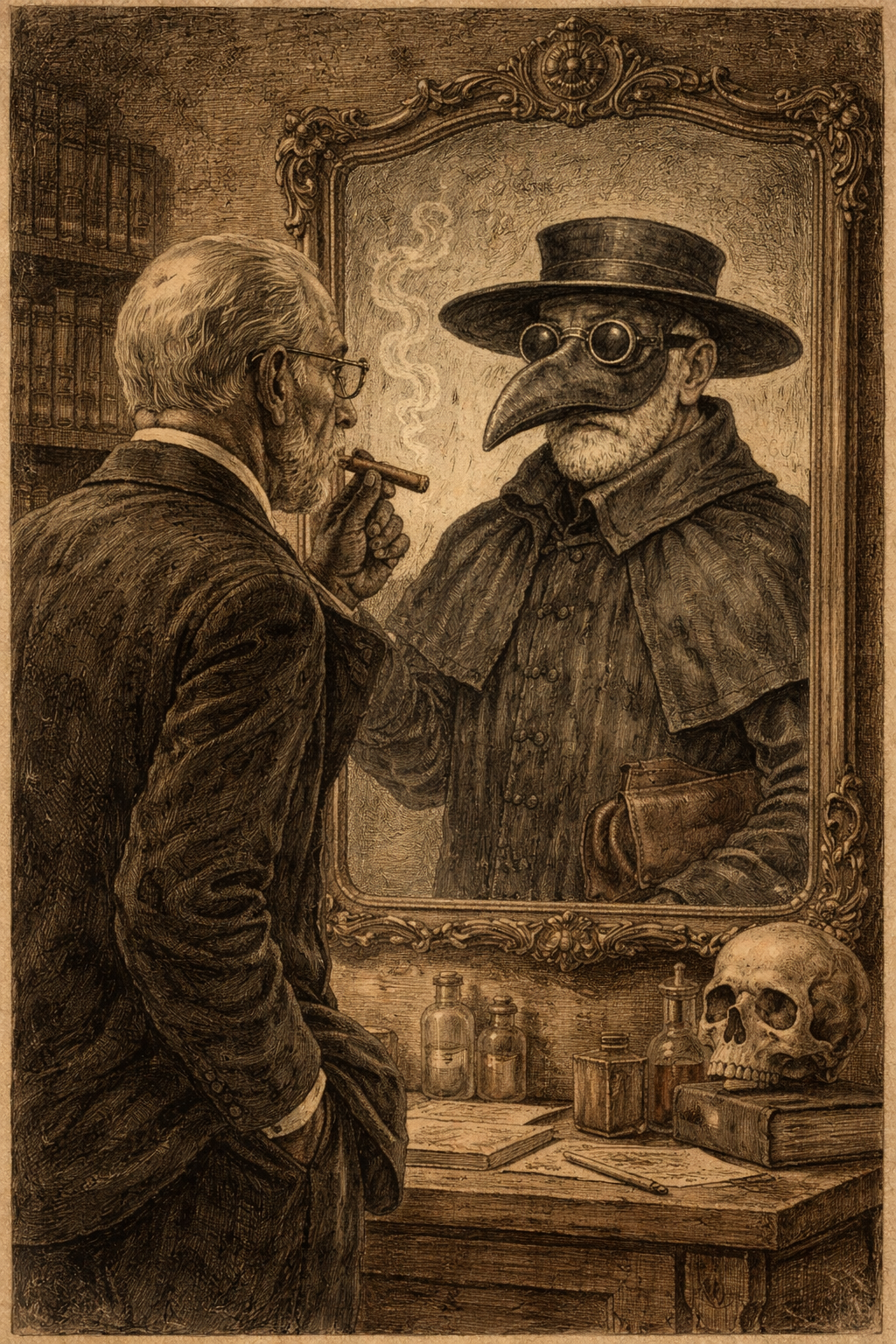A Guide to Freud's Structure of the Mind: Exploring the Id, Ego, and Superego
What’s the difference between the id, ego and superego? This guide explains Freud’s structure of the mind with simple definitions, examples you can remember, and a breakdown of how these three systems interact to shape behaviour, conflict and personality.
| Structure | Main Function | Operates On | Key Characteristics |
|---|---|---|---|
| Id | Instincts and basic drives | Pleasure principle | Immediate gratification, unconscious, impulsive |
| Ego | Reality-based decision making | Reality principle | Mediates between id and superego; logical; partly conscious |
| Superego | Moral standards and ideals | Morality principle | Internalized rules; guilt; conscience and ego ideal |
Exploring the Id, Ego, and Superego
Sigmund Freud, a name almost synonymous with psychology, revolutionized the way we understand the human mind. His theory of the structure of the mind—the id, ego, and superego—remains one of his most iconic contributions to psychoanalysis. While not without controversy, this framework offers a fascinating lens through which to view human behaviour, decision-making, and personality.
In this guide, we’ll explore the id, ego, and superego in depth, examining their roles, interactions, and influence on our daily lives. We'll also delve into the historical context of Freud's work, modern interpretations, and ongoing debates about his ideas. Let’s dive in!
🔑 Key Points:
- Freud’s model divides the mind into three parts: the id (instincts), ego (reality), and superego (morality).
- The id seeks immediate gratification; the ego mediates between desires, morality, and reality; the superego enforces ethics and ideals.
- These forces often conflict, generating anxiety, which the ego manages through defence mechanisms like repression and denial.
- Freud’s ideas have influenced psychology, therapy, and culture — but also face criticism over scientific validity and gender bias.
- Despite its limitations, Freud’s tripartite model remains a foundational tool for understanding internal conflict and human behaviour.
The Historical Context: Freud’s Foundations
Before we explore the structure of the mind, it’s worth understanding the environment in which Freud developed his theories.
Sigmund Freud (1856–1939) was an Austrian neurologist who, dissatisfied with the medical explanations of psychological distress at the time, sought a deeper understanding of the mind. In the late 19th and early 20th centuries, psychology was in its infancy, and Freud was among the first to propose that much of our mental activity operates unconsciously.
Freud introduced the id, ego, and superego in his 1923 work, The Ego and the Id. This tripartite model built upon earlier ideas about the conscious, preconscious, and unconscious mind. It was Freud’s way of explaining how personality develops and how inner conflicts drive behaviour. His work was heavily influenced by the Victorian era’s rigid moral codes and the burgeoning field of psychiatry.
The Id: The Wild Child
The id is the most primal and instinctual part of the human psyche. According to Freud, it is the part of the mind that is present from birth, operating as the unconscious source of all psychic energy. The id functions based on the pleasure principle, meaning it seeks immediate satisfaction of its desires and urges, without any concern for the reality of the situation, logic, or ethical considerations. It is the part of the mind that is wholly unconscious, driven by the basic and often unrestrained forces of human nature.
Key Characteristics of the Id
Instinctual Drives: The id is primarily driven by basic survival instincts and biological urges. Freud identified these as basic needs like hunger, thirst, sexual desire, and aggression, which he collectively referred to as the libido. These urges are not influenced by reason but are rather immediate demands for gratification. For example, when you're hungry, the id urges you to eat right away, without considering the environment or whether it is appropriate to do so.
Irrational and Impulsive: The id operates without any rationality. It doesn’t consider consequences, planning, or long-term goals. It acts based on the immediate gratification of its desires. For example, the id doesn’t care if it’s 2 a.m. and you need to wake up early for work tomorrow—it wants to stay up playing games or watching TV because that is what feels good in the moment.
Completely Unconscious: The id is unconscious, meaning we are not directly aware of it. It influences us through our instinctual reactions and impulses. While you might not consciously think about it, your id is constantly driving your immediate desires. This is why we sometimes act impulsively or in ways that seem to contradict our better judgment.
A Practical Example
Imagine you're sitting in a meeting, trying to focus, when you suddenly feel an overwhelming urge to grab a cookie from the snack table. The id is at play here: you don’t think about whether it's polite, appropriate, or if it's someone else's treat. Your hunger and desire for the cookie override any sense of self-control or social consideration.
The Ego: The Balancer
The ego develops as a child matures and begins to navigate the external world. Freud described the ego as the executive of the mind, managing the balance between the impulsive desires of the id and the moral constraints of the superego, all while considering the demands and limitations of reality. The ego operates on the reality principle, meaning it works to find realistic, socially acceptable ways to satisfy the id's desires. Essentially, it’s the part of the mind that helps us make decisions that take both our immediate desires and the external world into account.
Key Characteristics of the Ego
Mediator: The ego acts as the intermediary between the id’s demands for instant gratification, the superego’s moral imperatives, and the practical limitations of the external world. It assesses the feasibility of desires and works to find solutions that satisfy them without causing harm or conflict.
Reality-Oriented: Unlike the id, which focuses on immediate desires, the ego takes a more grounded, realistic approach to decision-making. It considers what is socially acceptable, possible, and sustainable in the long term. The ego recognizes that some desires must be delayed or modified in order to achieve more significant and enduring rewards.
Conscious and Unconscious: The ego functions both consciously and unconsciously. While much of its work happens outside of our awareness, it also plays a vital role in conscious decision-making. The ego enables us to reason, make plans, and navigate the complexities of daily life, often without much thought.
A Practical Example
Returning to the cookie scenario: The ego acknowledges the immediate hunger of the id but considers the context. Is it appropriate to take a cookie right now, or is it better to wait? Maybe the cookies are for a gathering later, or maybe you could simply ask if you can have one. The ego finds a solution that fits the constraints of reality—perhaps waiting until later or offering a polite request. It may even suggest a more reasonable course of action, like finding another snack in the meantime.
The Superego: The Moral Compass
The superego is the last aspect of the human psyche to develop, typically emerging around the age of 5 or 6. It forms as children internalize societal norms, cultural rules, and parental values, gradually shaping their understanding of what is morally right or wrong. Freud described the superego as the moral conscience of the mind, aiming to guide individuals toward ethical behaviour and decisions. The superego holds ideals and standards of perfection that influence judgments, guilt, and aspirations.
Key Characteristics of the Superego
Internalized Morality: The superego is rooted in the values, morals, and rules we learn from external sources such as parents, society, religion, and culture. It is responsible for our understanding of right and wrong and strives for moral perfection. The superego does not simply punish wrongdoings—it also encourages us to strive toward the "ideal" version of ourselves, based on moral and ethical ideals.
The Ego Ideal: The ego ideal is the component of the superego that reflects our idealized self-image—who we wish to become based on moral or ethical standards. It encourages behaviours that align with these ideals and promotes self-improvement.
The Conscience: The conscience is the aspect of the superego that punishes or makes us feel guilty for thoughts, feelings, or actions that contradict the moral standards we have internalized. It serves as a guide to help us adhere to social norms and ethical codes.
A Practical Example
Returning once again to the cookie situation: The superego would likely impose feelings of guilt or moral conflict if you were to take the cookies without permission, as it perceives such an action as wrong or inconsiderate. The superego might remind you of the importance of respecting others’ property or following rules. It may also encourage you to wait for an appropriate time to ask for a cookie, or to perhaps offer to share them. The superego’s influence would not only guide you toward moral choices but also make you feel discomfort or shame if you were to act against those moral standards.
The Interplay Between the Id, Ego, and Superego
Freud's theory suggests that human behaviour is the result of the dynamic interactions and constant conflict between the three core components of the psyche: the id, ego, and superego. These parts of the mind are not isolated but are in constant negotiation with each other, leading to a complex system of drives, controls, and internal moral standards. The balance between these elements shapes our thoughts, feelings, and actions.
Conflict and Anxiety:
Freud proposed that much of human anxiety arises from the tension between the id’s primal urges, the superego’s moral standards, and the ego’s need to reconcile these opposing forces within the boundaries of reality. This conflict is often unconscious, but it can manifest in anxiety, frustration, and emotional turmoil.
Id vs. Superego: The most fundamental conflict occurs between the id’s desire for instant gratification and the superego’s strict moral code. The id operates on the pleasure principle, pushing for the immediate satisfaction of its desires regardless of the consequences, while the superego upholds the morality principle, enforcing ethical behaviour based on internalized societal values. These two forces are often in direct opposition to one another.
Example: Imagine it’s a Saturday morning, and you’re feeling exhausted. The id urges you to stay in bed all day, perhaps watching movies or sleeping, driven by the immediate desire for comfort and rest. Meanwhile, the superego insists you should be productive—perhaps you have studying or chores to complete, and the superego might push you with feelings of guilt for even considering a lazy day. The id and superego pull you in opposite directions, creating internal tension.
The Ego’s Role: The ego, which is grounded in reality, attempts to navigate this conflict. It tries to find a way to meet the id’s needs without overstepping the boundaries set by the superego or causing significant harm. The ego works to create a practical and acceptable solution to satisfy both the desire for comfort and the obligation to be productive, without triggering too much guilt or anxiety.
Example: In the case of the Saturday morning scenario, the ego might mediate by proposing a compromise: you could rest for a bit longer, but then set a specific time to study or take care of responsibilities. This allows the id to get some relaxation, while also appeasing the superego’s need for productivity.
Defence Mechanisms:
When the conflict between the id and superego becomes too intense or overwhelming, the ego often resorts to defence mechanisms to protect itself from anxiety. These mechanisms are unconscious strategies that help reduce emotional discomfort by distorting reality or shifting focus away from the source of anxiety.
Repression: One of the most fundamental defence mechanisms, repression involves pushing uncomfortable or threatening thoughts, memories, or desires into the unconscious. By doing this, the ego prevents these troubling impulses from becoming conscious, protecting the individual from anxiety.
Example: If someone has a traumatic childhood memory, they may repress it to avoid the distressing emotions that arise from it. The memory might not be accessible to the conscious mind, though it could still affect their behaviour in subtle ways.
Denial: In denial, the ego refuses to acknowledge reality or the existence of an uncomfortable truth. This can be an outright rejection of facts or feelings that are too difficult to accept.
Example: Someone who is addicted to a substance might deny that they have a problem, despite clear evidence to the contrary, because acknowledging the issue would lead to significant anxiety or guilt.
Displacement: Displacement involves redirecting strong emotions, typically anger or frustration, from the true source to a safer or less threatening target. This mechanism helps the individual cope with feelings they cannot express directly due to fear of consequences.
Example: After a frustrating day at work, you might go home and yell at your roommate, not because they did anything wrong, but because you are unable to express your anger toward your boss. The ego displaces the emotional energy to a more manageable situation.
Psychological Balance:
A healthy psychological state relies on the ego's ability to maintain a delicate balance between the id’s demands, the superego’s moral imperatives, and the constraints of the real world. When this balance is achieved, the individual can function effectively and in harmony with their desires, moral values, and external obligations. However, imbalances can lead to various psychological issues.
Overbearing Id: If the ego allows the id to dominate, the individual may become impulsive, self-centered, and driven purely by pleasure and desire. This might manifest in behaviours such as addiction, excessive indulgence, or reckless actions that disregard the needs of others or long-term consequences.
Example: If someone consistently gives in to the id’s urges to eat unhealthy food, sleep excessively, or skip responsibilities, they may face negative consequences like health problems, academic or work struggles, or relationship issues.
Overbearing Superego: If the superego becomes too dominant, it can lead to excessive guilt, self-criticism, and rigid behaviour. The individual might become overly perfectionistic or excessively concerned with following rules, sometimes to the detriment of their well-being or social relationships.
Example: A person with an overly dominant superego might feel guilty about taking breaks, even when they are physically or mentally exhausted, because they believe they should always be working or achieving. This can lead to burnout, depression, or an inability to enjoy leisure or rest.
Ego’s Balance: A psychologically healthy individual has an ego that is flexible, able to navigate between the competing demands of the id and superego while remaining grounded in the reality of the external world. Such an individual can experience pleasure, but also understand the importance of delaying gratification when necessary. They can adhere to moral standards without feeling crushed by guilt or shame.
Example: A well-balanced individual might enjoy a weekend of relaxation (satisfying the id’s desire) but also ensure they complete important tasks (honouring the superego) in a way that feels realistic and manageable.
Freud's model of the psyche emphasizes that the dynamic interaction between the id, ego, and superego shapes our behaviour and emotional state. The ongoing conflict between the id’s primal desires and the superego’s moral restrictions often leads to anxiety, which the ego must navigate. When the ego is unable to mediate these forces effectively, defence mechanisms come into play, allowing us to cope with the internal tension. Ultimately, maintaining psychological balance requires the ego to manage the demands of both the id and the superego in a way that is responsive to both internal desires and external realities, promoting a healthy, functional mind.
Contemporary Perspectives on Freud’s Theory
Freud’s psychoanalytic theory has profoundly influenced psychology, but it has also been critically examined and reinterpreted in the years since its introduction. While some aspects are still celebrated, others are challenged or adapted to align with modern psychology. Let’s dive into the contemporary views and ongoing debates surrounding Freud’s work.
Challenges to Freud’s Ideas
One of the most significant criticisms of Freud’s theories is their lack of scientific rigor. His ideas were developed through methods such as introspection and case studies, which are inherently subjective and not easily replicated in controlled experiments. This has led to concerns about whether Freud’s concepts—like the id, ego, and superego—can truly be tested or validated. For instance, while his interpretation of dreams as expressions of unconscious desires is fascinating, it relies on anecdotal evidence and lacks the empirical foundation expected in modern psychological research.
Another area of critique is Freud’s emphasis on sexuality as the central driver of human behaviour. While his ideas about unconscious desires were revolutionary, many psychologists argue that he placed too much weight on sexual instincts at the expense of other important factors. Modern theorists have broadened this perspective to consider a wider range of influences, such as cognitive development, social relationships, and cultural contexts. Erik Erikson’s psychosocial theory, for example, builds on Freud’s work by exploring identity and social roles throughout the entire lifespan, offering a more inclusive and balanced approach.
Freud’s work also reflects the biases of his time, particularly in his views on gender and culture. His concept of “penis envy,” which suggested that women feel inherently inferior to men due to the absence of male genitalia, has been widely criticized as sexist and rooted in Victorian-era assumptions. Feminist psychoanalysts like Karen Horney argued that Freud misrepresented women’s psychology and failed to account for the societal inequalities shaping their experiences. Horney even introduced the concept of “womb envy,” proposing that men may experience unconscious envy of women’s reproductive capabilities—a critique that highlights the cultural limitations of Freud’s theories.
Similarly, Freud’s theories, developed in a Western, individualistic context, may not resonate in collectivist cultures where social harmony and relationships are prioritized. For example, the internalized societal rules represented by the superego might manifest differently in cultures where communal values and familial obligations take precedence over individual morality.
Enduring Contributions to Psychology
Despite these critiques, Freud’s work remains influential in many areas of psychology and continues to inspire research and practice.
One of his most enduring contributions is the idea of the unconscious mind. Although Freud’s specific descriptions of unconscious processes have not been fully validated, modern psychology recognizes that much of our mental activity occurs outside conscious awareness. Studies on implicit biases, automatic decision-making, and subliminal perception provide evidence that unconscious factors play a significant role in shaping our behaviour, supporting Freud’s broader claims about the unconscious mind.
Freud’s focus on the impact of early childhood experiences also remains a cornerstone of developmental psychology. While his psychosexual stages are no longer widely accepted, his broader assertion that early relationships and experiences shape adult personality is still influential. Researchers like John Bowlby, who developed attachment theory, and Erik Erikson have expanded on Freud’s ideas to explore how early bonds and developmental milestones influence emotional health and social functioning throughout life.
Modern psychodynamic therapy is another area where Freud’s influence is apparent. While his original psychoanalytic techniques, such as free association and dream interpretation, are less common, psychodynamic therapy incorporates many of his core ideas in a more accessible and evidence-based way. This approach focuses on uncovering unconscious patterns and understanding how past experiences shape current behaviour, making it particularly effective for treating complex, long-term psychological issues like trauma and personality disorders.
Additionally, Freud’s theories have inspired reinterpretation across disciplines. Feminist psychoanalysis, for example, revisits his ideas to explore gender dynamics and power structures, while postmodern theorists like Jacques Lacan use Freud’s framework to investigate the symbolic nature of human desire. Even outside psychology, Freud’s work remains central to discussions in literature, philosophy, and cultural studies, where his concepts of repression, the unconscious, and inner conflict continue to resonate.
Debates and Controversies
Freud’s theories have sparked ongoing debates, both within psychology and in broader intellectual circles. These discussions touch on the scientific validity, cultural relevance, and ethical implications of his work.
The Reality of the Unconscious Mind
One of the most debated aspects of Freud’s work is his concept of the unconscious. Modern psychology has uncovered evidence for unconscious processes, such as implicit memory, automatic behaviours, and emotional regulation. However, these findings do not always align with Freud’s vision of the unconscious as a repository of repressed desires and inner conflicts. Neuroscientific research has added nuance to our understanding of unconscious mechanisms, but some argue that Freud’s version is too symbolic or metaphorical to be scientifically tested. Critics often see his unconscious as more of a philosophical framework than a scientifically grounded theory.
Universality of Freud’s Theories
Freud presented his theories as universally applicable, but many have questioned whether they are as broadly relevant as he claimed. His ideas were shaped by a Western, patriarchal, and individualistic context, which influences their scope and applicability.
For example, Freud’s explanation of neurosis and guilt hinges on the internalized superego and its strict moral codes. However, in collectivist cultures, where communal values and relational harmony are prioritized, these dynamics may function differently. Similarly, Freud’s views on gender, particularly his concept of “penis envy,” reflect the male-dominated society of his time rather than universal psychological truths. Feminist psychoanalysts have highlighted how his theories marginalize female experiences and fail to account for societal structures that perpetuate gender inequality.
Scientific Validity and Methodology
Freud’s methods have also been criticized for their lack of scientific rigor. His reliance on case studies, such as Anna O. and Little Hans, has been described as anecdotal and unrepresentative. Additionally, Freud’s tendency to interpret his patients’ experiences through the lens of his preexisting theories raises concerns about confirmation bias. While these critiques challenge Freud’s scientific credibility, his qualitative approach to understanding the subjective experience laid the groundwork for many modern therapeutic practices, which continue to emphasize the importance of narrative and individual context.
Freud’s Broader Influence
Outside psychology, Freud’s ideas have profoundly shaped cultural and intellectual discourse. His theories provide tools for analyzing unconscious themes in literature, art, and culture, making him central to psychoanalytic literary criticism and cultural studies. Postmodern thinkers have expanded on Freud’s ideas to explore language, identity, and the symbolic nature of human desire, ensuring that his work remains relevant in interdisciplinary fields.
At the same time, Freud’s ethical legacy is not without controversy. His role as an interpreter of the unconscious has raised questions about the power dynamics between therapist and patient, particularly in the context of his more authoritative or prescriptive methods. These concerns have sparked ongoing debates about the ethics of psychoanalysis and the balance of power in therapeutic relationships.
Simply Put
While Freud’s theory of the id, ego, and superego isn’t without flaws, it offers a valuable framework for understanding human behaviour. It reminds us that we’re complex beings influenced by unconscious desires, social pressures, and moral ideals.
For psychology students or anyone curious about the mind, Freud’s work serves as a starting point—a way to think critically about why we behave the way we do and how inner conflicts shape our lives. Whether you embrace, adapt, or challenge his ideas, Freud’s legacy endures as a testament to the complexities of the human psyche.
📌 Frequently Asked Questions
🧠 Quiz: Freud’s Structure of the Mind
References
Freud, S. (1923). The Ego and the Id. Vienna: Internationaler Psychoanalytischer Verlag.
Horney, K. (1926). The Neurotic Personality of Our Time. New York: W.W. Norton & Company.
Westen, D. (1998). The Scientific Legacy of Freud. New York: Guilford Press.
Bowlby, J. (1969). Attachment and Loss: Volume I. Attachment. London: Hogarth Press.
Erikson, E. H. (1950). Childhood and Society. New York: W.W. Norton & Company.
Lacan, J. (1977). Écrits: A Selection. New York: W.W. Norton & Company.

















